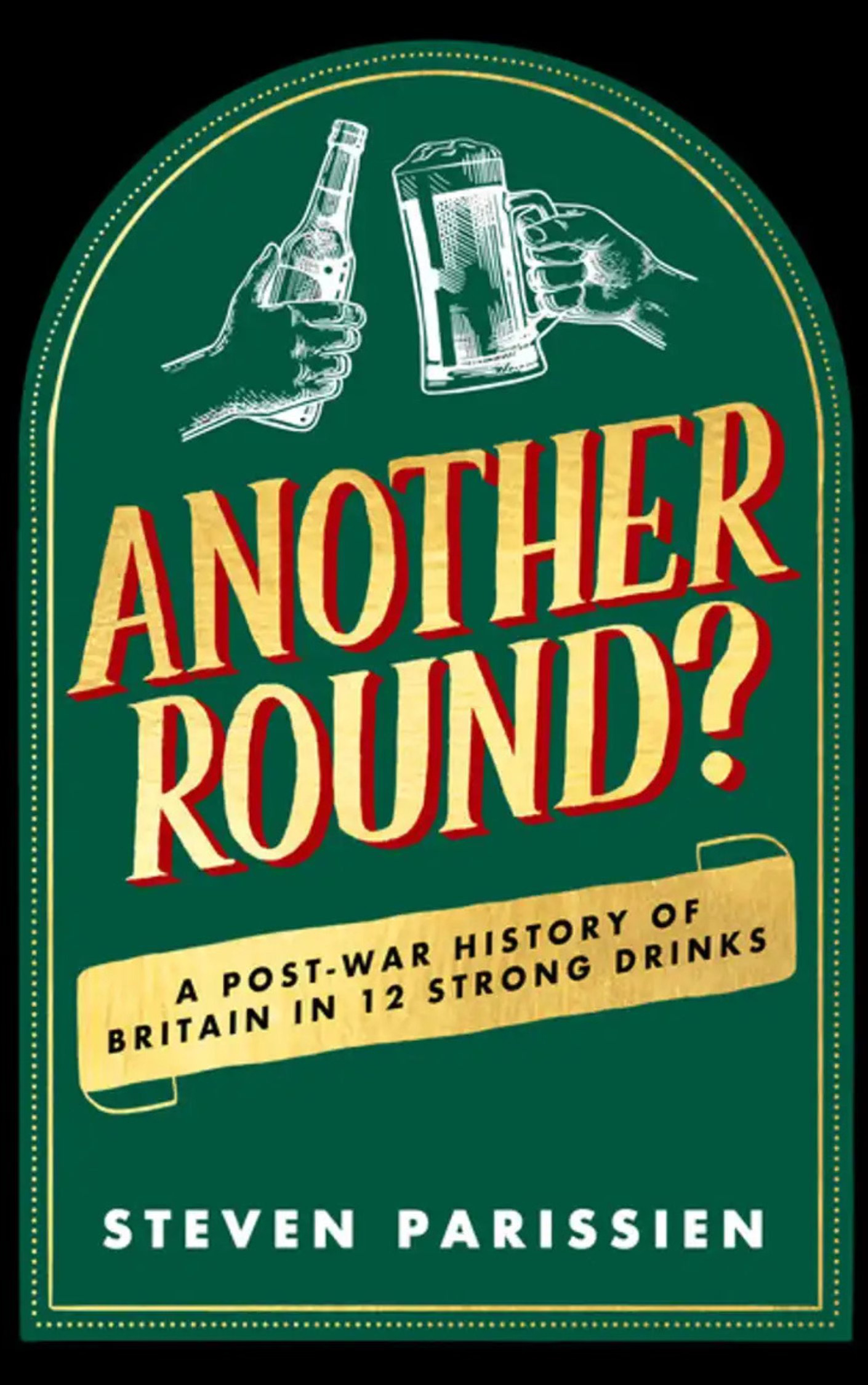The Fountain of Youth – WKD
From Ladettes to Love Island: A Brief History of Poor Decisions – Part 2
Right from the start, WKD was unambiguously aimed at the youth market – whereas the existing market leader, Bacardi Breezer of 1993, was pitched at a more urbane, adult audience. WKD’s first marketing campaign posed the question: ‘Have you got a WKD side?’ And yes, they most definitely had. The original Blue version – supposedly a ‘mixed fruit’ flavour (whatever that meant), coloured a luminous shade of electric blue rarely found in nature – was soon supplemented by a dazzlingly orange ‘Iron Brew’ flavour, created specifically for the Scottish market as an alcoholic take on Cumbernauld-based A.G. Barr’s venerable soda, Irn Bru, which first hit shelves in 1901.1
Additions to the WKD line-up followed thick and fast. In 2021, a raspberry-flavoured Pink Gin variant arrived. In 2022 came Berry Blast; in 2023, Orange and Passionfruit; and in 2024, as we’ll see, a lurid purple, grape-tasting ‘Love Island’ edition burst onto the scene.
WKD’s promotion took its cue from these adolescent-friendly flavours. Unlike its more grown-up, internationally focused rivals – Diageo’s Smirnoff Ice and the relaunched Bacardi Breezer (which in 2019 shed both the Bacardi name and its eponymous bat logo) – WKD Original Vodka’s extensive advertising was squarely targeted at a down-to-earth, working-class, youthful market. The drink was plastered on football club hoardings, distributed at student bars and flogged in nightclubs. The terms ‘lad’ and ‘laddish’ – along with their feminine counterpart, ‘ladette’2 (‘a young woman who behaves in a noisy way, uses rude language, and drinks a lot of alcohol’) – fitted WKD’s brash strategy like a glove.
The brand’s defiant down-market edge shone brightest in its sponsorship of the WKD Shed Sports Show, which shared airtime on the brazenly laddish Nuts TV alongside gems such as Rude News and Overexposed, a guide to glamour shoots. WKD even backed the station’s WKD Nuts Football Awards before Nuts TV folded in January 2009 after just 28 months. SHS’s marketing budget then found its way into the Professional Darts Corporation’s World Matchplay, Grand Slam of Darts and the World Darts Championships. As SHS proudly proclaimed:
The three PDC tournaments run across 38 days and will be screened live on Sky Sports. WKD logos will appear on players’ shirts and on venue branding. Sampling activity and on-site promotions will also run at the tournaments. In the lead-up to each tournament, tickets to sold-out sessions will be offered as prizes via social networking sites. Online promotions will also give consumers the chance to win darts shirts signed by players, and other darts-related merchandise. Away from the tournaments, WKD will be the subject of darts-themed activities in selected on-trade outlets around the UK.
This approach revealed the secret sauce of WKD’s success. Unlike the big spirit, wine and beer brands, which splashed hundreds of thousands on TV and poster campaigns, SHS went straight to where young people were – online and on-site – and did it on a shoestring. ‘Students are a really important audience for WKD,’ admitted Marketing Director Amanda Grabham in 2011, announcing a social-media push ‘in collaboration with students across the UK’ to ‘ensure WKD is front of mind this summer.’ It wasn’t just about targeting; it was about co-creating the buzz.
The perfect match arrived in 2024 when SHS signed WKD up as the ‘official alcohol partner’ of the ITV2 reality juggernaut Love Island. The show averaged 5.9 million viewers among 18–35-year-olds, and was a hit with under-18s too. WKD’s Pink variety took centre stage. ‘In the “always on” world of young adults, linking with the show gives WKD the opportunity to drive relevant messaging to our target audience 24/7,’ said Alison Gray, Head of Brand Marketing. Marcus Freer, SHS’s comms lead, even roped in his 18-year-old daughter: ‘She was so excited when we told her. She just thought it was great.’ Yet, Freer insisted, this partnership didn’t signal a move away from the brand’s laddish roots.
Unsurprisingly, WKD’s flirtation with the barely-legal teen market drew fierce criticism. In 2016, Emily Robinson, then Deputy Chief Executive of Alcohol Concern (now Alcohol Change UK), said bluntly:
We think that the creation of alcopops was a pretty cynical attempt to recruit young drinkers who don’t naturally like the taste of alcohol by tempting them with flavours more likely to be found in soft drinks. Marketing and branding these drinks in a style that appealed to young people was key to the success.
Some supermarkets – notably the Co-op and Iceland – initially pulled alcopops from their shelves, though most restocked within a couple of years. In autumn 1996, Chancellor Kenneth Clarke hiked alcopop tax by 40% in a bid to price teenage purses out of reach. It failed. The Portman Group, the industry-funded ‘drink responsibly’ watchdog, issued its first code of practice in response to WKD’s launch, but none of these moves stemmed the tide. A 2002 report from Tony Blair’s Strategy Unit revealed that alcohol consumption among 11 to 15-year-olds had risen by 63% since 1992 – much of it fuelled by the alcopop craze. As the BBC News Magazine noted on 9 November 2005:
Alcopops were widely seen as a gateway drink, priming teenage taste buds, more normally accustomed to sweet fizzy drinks, for something with a boozy kick. And what a kick – typically, they boasted alcohol levels of 5%, similar to a premium lager, and stronger than the ciders and beers that mischievous teenagers had traditionally turned to when looking to spice up an evening.
Next time: WKD Behaves (Sort Of)
As public concern over alcopops and adolescent antics grew louder, Joe Woods took the pragmatic path – co-authoring a code of conduct that kept regulators (mostly) at bay. But even a seat at the Portman table couldn’t prevent the ASA from frowning at WKD’s ads, which still seemed a little too eager to join the sixth-form common room.
From Another Round: A Post-War History of Britain… in Twelve Drinks
Dr Steven Parissien’s hotly anticipated new book out this September — as intoxicatingly insightful as the stories it uncorks. Available for presale here: https://tinyurl.com/AnotherRoundPresale
Irn-Bru’s unmistakably lurid hue is partly due to the controversial food colouring Sunset Yellow, which has been linked to cases of ADHD in children. In 2011, a proposed reduction in the drink’s Sunset Yellow content was successfully resisted by the then Scottish First Minister, the late Alex Salmond.
First coined by The Sunday Times in 1995.







